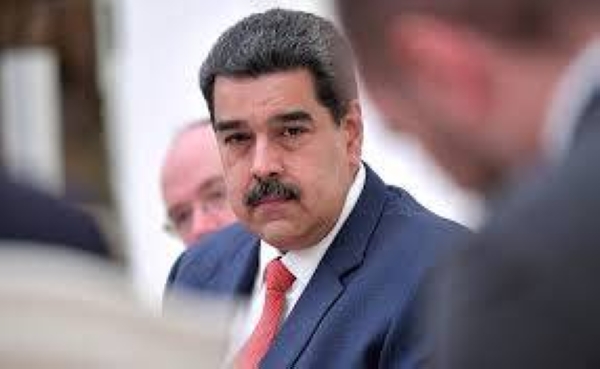
Catalans voted 90 percent in favor of breaking away with Spain after in a turbulent referendum that was marred by a violent police crackdown on voters.
Catalonia has "won the right to become an independent state," Catalan president Carles Puigdemont said after the polls closed, adding that he would keep his pledge to declare independence unilaterally if the "yes" side wins.
Catalan regional government spokesman Jordi Turull told reporters early Monday that 90 percent of the 2.26 million Catalans who voted chose the "yes" side in favor of independence. He said nearly 8 percent of voters rejected independence and the rest of the ballots were blank or void. He said 15,000 votes were still being counted.
This turnout came despite Spanish police using batons and rubber bullets to disrupt the banned referendum, which was declared unconstitutional by Madrid.
Catalan officials said more than 800 people were injured in clashes with Spanish riot police during the referendum, which has pitched the country into its deepest constitutional crisis in decades and deepened a rift between Madrid and Barcelona.
Police were acting on a judges orders to stop the referendum, which the Spanish government had declared illegal and unconstitutional — and Prime Minister Mariano Rajoy said going forward with the vote only served to sow divisions.
Rajoy accused separatists of trying to “blackmail ... the whole nation”. He offered all-party talks on the region’s future.
Spanish Foreign Minister Alfonso Dastis said the violence, while "unfortunate" and "unpleasant" was "proportionate."
"If people insist in disregarding the law and doing something that has been consistently declared illegal and unconstitutional, law enforcement officers need to uphold the law," Dastis told The Associated Press in an interview.
“On this day of hope and suffering, Catalonia’s citizens have earned the right to have an independent state in the form of a republic,” Puigdemont said in a televised address.
“My government, in the next few days will send the results of today’s vote to the Catalan Parliament, where the sovereignty of our people lies, so that it can act in accordance with the law of the referendum,” he said.
The law of the referendum foresees a unilateral declaration of independence by the Catalan parliament if the majority votes to leave Spain. The law does not set a minimum turnout for the outcome to be valid.
The results announced early on Monday were not a surprise, given that many unionists were not expected to turn out to vote.
Earlier in the day, the streets of Catalonia, an industrial and tourism powerhouse accounting for a fifth of Spain’s economy, erupted into violence as national police burst into polling stations with batons, dragging voters away.
The action drew criticism at home and abroad. British Foreign Secretary Boris Johnson voiced worries over the violence while backing Madrid’s view that the vote was unconstitutional.
Spain’s deputy prime minister said force used by the police had been proportionate.
“The absolute irresponsibility of the regional government has had to be met by the security forces of the state,” said Soraya Saenz de Santamaria.
The euro lost about a third of a US cent after the violence-marred vote before steadying. It touched a low of $1.1776 in thin Asian trade but soon steadied at $1.1801.
Puigdemont called on Europe to step in to make sure fundamental rights were fully respected. He said he would appeal to the European Union to look into alleged human rights violations during the vote.
In another sign tensions would endure beyond the vote, secessionist groups and trade unions in Catalonia called a general strike for Tuesday, La Vanguardia newspaper said.
Catalan officials said 844 people had been injured in the police crackdown and the Spanish Interior Ministry said 12 police officers had been hurt.
“I propose that all political parties with parliamentary representation meet and, together, reflect on the future we all face,” Rajoy said in his televised address.
Opinion polls had shown around 40 percent of the northeastern region wanted independence from Spain although a majority were in favor of a referendum on the issue.
Despite the national police action, some polling stations remained open, especially in areas supervised by the Catalan police force which adopted much milder tactics.
“I’m so pleased because despite all the hurdles they’ve put up, I’ve managed to vote,” said Teresa, a 72-year-old pensioner in Barcelona who had stood in line for six hours to vote.
The ballot will have no legal status as it has been blocked by Spain’s Constitutional Court which ruled it at odds with the 1978 constitution that effectively restored democracy in Spain after the dictatorship of General Francisco Franco.










